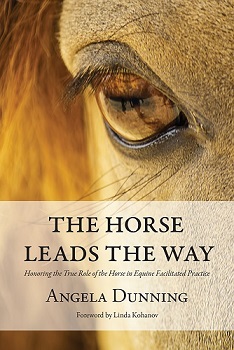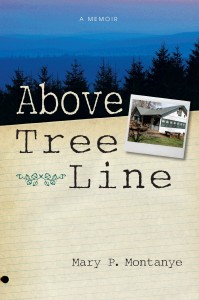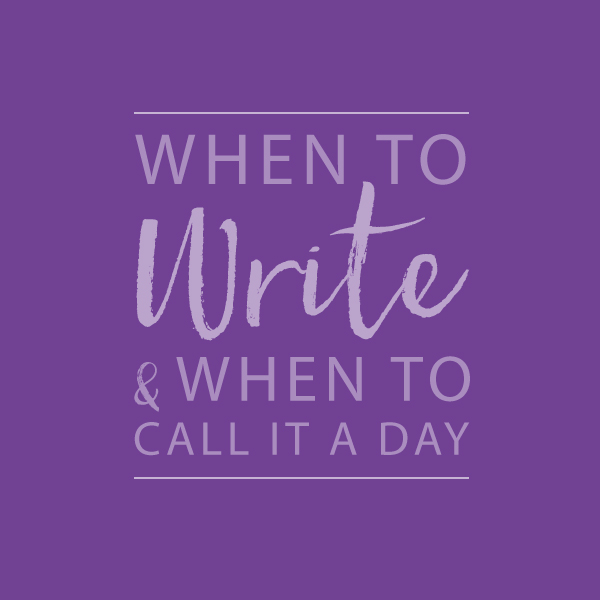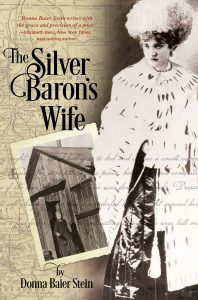When I work with writers to help them stop procrastinating, usually they don’t quite know why they’re doing it. They often end up labeling it as laziness or writer’s block. I can tell you that I’ve never met a truly lazy writer, and while I certainly have met some who are blocked, sometimes a little delving is required to uncover the deeper issues that are stopping them from writing.
Let’s talk about the spectrum of writing-stoppers that show up as procrastination.
You’re stuck.
You might find yourself procrastinating when you’re stuck. Maybe you’ve hit a section you aren’t sure how to deal with, or you need to rewrite some or all of your draft but you’re not sure where to start, so you just… don’t. This stuckness doesn’t take long to turn into procrastination, and soon, to full on avoidance.
Antidotes: Sometimes when you’re stuck, you need help to get going again. A plot coach or a writing friend often comes in handy here. Alternatively, you might want to write about the writing — this is a great time for some journaling and brainstorming to unlock your writing energy and ideas.
You’re overwhelmed.
Sometimes the sheer volume of work facing you will cause you to procrastinate. When you’re looking at a mountain, it’s hard not to feel the weight of it bearing down on you.
Antidotes: The antidote for overwhelm is to find one small step to take. In other words, what’s the first thing you can think of, no matter how small, that you know you can do now? Then do the next thing. This is a great time to pick easy things to do too, because when you’re feeling overwhelmed, easy makes it doable. Sometimes I’ll just work on formatting for a bit to get myself back into the project, no matter how fiddly it is. No step forward is too small.
You’ve been hooked by perfectionism.
When you get stuck in believing that you must make your writing perfect or get caught up in visions of this being your biggest hit ever, you’ll be triggering procrastination faster than you might believe. Perfectionism, procrastination, and paralysis work together to create a vicious cycle that keeps you from writing, ever. Perfectionism is funny way of staying safe too, because if you don’t write it, you don’t have to see it being flawed and imperfect, nor can you be ridiculed for it.
Antidotes: Make peace with being an imperfect human being who values writing and finishing more than telling yourself whoppers about incredible success or massive failure that hold you back. Embrace the notion that only the divine is perfect, and decide that messy and done is so much better than not writing.
Your inner critic is freaking out.
When the voice of your inner critic starts getting loud and scary, it’s hard to keep writing, especially if you listen to it as if it’s the voice of truth and reason, rather than simply a terrified guard dog it trying to keep you safe. Also note that this voice will get louder and scarier the closer you are to the precipice of taking action, finishing a draft, or moving into a new level of your career. If those aren’t reasons to procrastinate, I don’t know what is!
Antidotes: First, pat your inner critic on the head and tell him/her that you’re going to take care of everything, you got this, and you don’t need any help protecting yourself. Then, one by one, rewrite the negative self-messages that swirl through your mind while you’re writing into positive, believable statements. Having a coach or witness for this work helps it land more deeply and take root in your psyche in a positive way.
You’ve gotten feedback on your work and it’s affecting you.
Good feedback, bad feedback. Feedback period. All feedback affects us. It’s an energetic shock to the system that’s hard to absorb. We’ve been tenderly entwined with our beloved writing only to have it held at arm’s length by a stranger who cooly evaluates it. The stun from this can send you into a tailspin. And good feedback? Glowing feedback on your early chapters? That can be a recipe for triggering perfectionism and the anti-creativity cycle too, because suddenly you have to measure up to your existing work and you might not believe you can.
Antidotes: After giving yourself some time to recover from getting the feedback, take a deep, deep breath. Remind yourself who is in charge. (That would be you.) Evaluate the feedback as cooly as it evaluates your book. What do you agree with? Use that. What do you disagree with? Throw it out or save it for later re-evaluation.
You’re deeply exhausted and you’re self-protecting.
Sometimes you may procrastinate because you’re actually deeply tired or burned out, and reflexively protecting yourself from overextending. This may be the result of binge writing, pushing to meet deadline after deadline, or from being exhausted by a non-writing life circumstance.
Antidotes: Rest. Write for the love of it, if you’re called to do so, but make it easy, like journaling, and give yourself some time to recover. You will feel the call to write again. Trust me.
You’re dealing with a creative wound that needs addressing.
When you’re not writing… and not writing… and not writing… and it’s just going on forever, sometimes there are deeper creative wounds that have gotten triggered and need addressing. Like that time you were ridiculed for daring to make art and express yourself creatively. Or how you were raised in a family culture that taught you that writing would never pay your bills and you were a fool if you pursued it. Or the scathing feedback you received from someone you deeply loved. Events like these leave open wounds in our psyches, like ghosts in the machine.
Antidotes: Revisit the events in a safe way (such as through visualization or journaling) so you can find the truth in the experience from a broader spiritual perspective. From there, you’ll be able to begin to find forgiveness for yourself and peace with the experience. Often these experiences happen to us when we are young, and having our more mature perspective helps us begin to shift how we feel about it now. While you can do this work on your own, working with a coach or witness who can hold a safe space while you’re processing what happened can accelerate your growth and ability to move past the pain.
And there’s more…
There are many more underlying reasons for procrastination, including creative apathy, confusion, adrenaline addictions, and more. Read Part II, here.
When has procrastination most reared its head for you, and how have you dealt with it?
Share your stories and experiences in the comments section below.


 Writing my first ever book, a non-fiction handbook for my profession of equine facilitated practice, was one of the hardest and most challenging things I have ever done. I had no idea just what exactly was involved in creating and structuring an entire book. Having written articles and blog posts for many years now I found writing a book to be a whole different ballgame.
Writing my first ever book, a non-fiction handbook for my profession of equine facilitated practice, was one of the hardest and most challenging things I have ever done. I had no idea just what exactly was involved in creating and structuring an entire book. Having written articles and blog posts for many years now I found writing a book to be a whole different ballgame.



 From Amazon.com: “The traumas and losses of childhood are often buried. The child grows up appearing normal, unscathed and perhaps even successful. But often what is buried comes back to attack at the very moment when life is reaching its pinnacle. This is the story of one woman’s spiral downward into physical and mental breakdown and her return to wholeness by courageously, and some would say recklessly, following her intuition. Ms. Montanye’s intuition leads her to a tiny town in a Colorado canyon alongside the wild and scenic Cache La Poudre River. There, she immerses herself in the grandeur and beauty of the surrounding mountains. When her journey begins, no one involved can know that it will lead to such a powerful and bittersweet end: an end that includes healing for herself, her marriage and for the difficult relationship she endured with her mother.”
From Amazon.com: “The traumas and losses of childhood are often buried. The child grows up appearing normal, unscathed and perhaps even successful. But often what is buried comes back to attack at the very moment when life is reaching its pinnacle. This is the story of one woman’s spiral downward into physical and mental breakdown and her return to wholeness by courageously, and some would say recklessly, following her intuition. Ms. Montanye’s intuition leads her to a tiny town in a Colorado canyon alongside the wild and scenic Cache La Poudre River. There, she immerses herself in the grandeur and beauty of the surrounding mountains. When her journey begins, no one involved can know that it will lead to such a powerful and bittersweet end: an end that includes healing for herself, her marriage and for the difficult relationship she endured with her mother.”







 I chose the historical figure of Baby Doe Tabor as the main character of my first novel thinking her fascinating, event-filled, roller coaster life provided its own ready-made plot. I’d been writing stories and knew that my strength was language, not narrative structure. I’d even spent time in two radically different writing groups—one focused on literary fiction (heavy on characterization and language) and one focused on more plot-oriented genre fiction. I, rather arrogantly it turns out, preferred the literary focus. I was definitely a pantser rather than a plotter.
I chose the historical figure of Baby Doe Tabor as the main character of my first novel thinking her fascinating, event-filled, roller coaster life provided its own ready-made plot. I’d been writing stories and knew that my strength was language, not narrative structure. I’d even spent time in two radically different writing groups—one focused on literary fiction (heavy on characterization and language) and one focused on more plot-oriented genre fiction. I, rather arrogantly it turns out, preferred the literary focus. I was definitely a pantser rather than a plotter. Kirkus Reviews called the The Silver Baron’s Wife “an artistic, sympathetic imagining of the life of a 19th-century woman who made headlines for all the wrong reasons.” Foreword Reviews gave it five stars and said, “A unique portrait of a time and place populated by fearless people, this reimagination of an uncommon woman is powerful.”
Kirkus Reviews called the The Silver Baron’s Wife “an artistic, sympathetic imagining of the life of a 19th-century woman who made headlines for all the wrong reasons.” Foreword Reviews gave it five stars and said, “A unique portrait of a time and place populated by fearless people, this reimagination of an uncommon woman is powerful.”